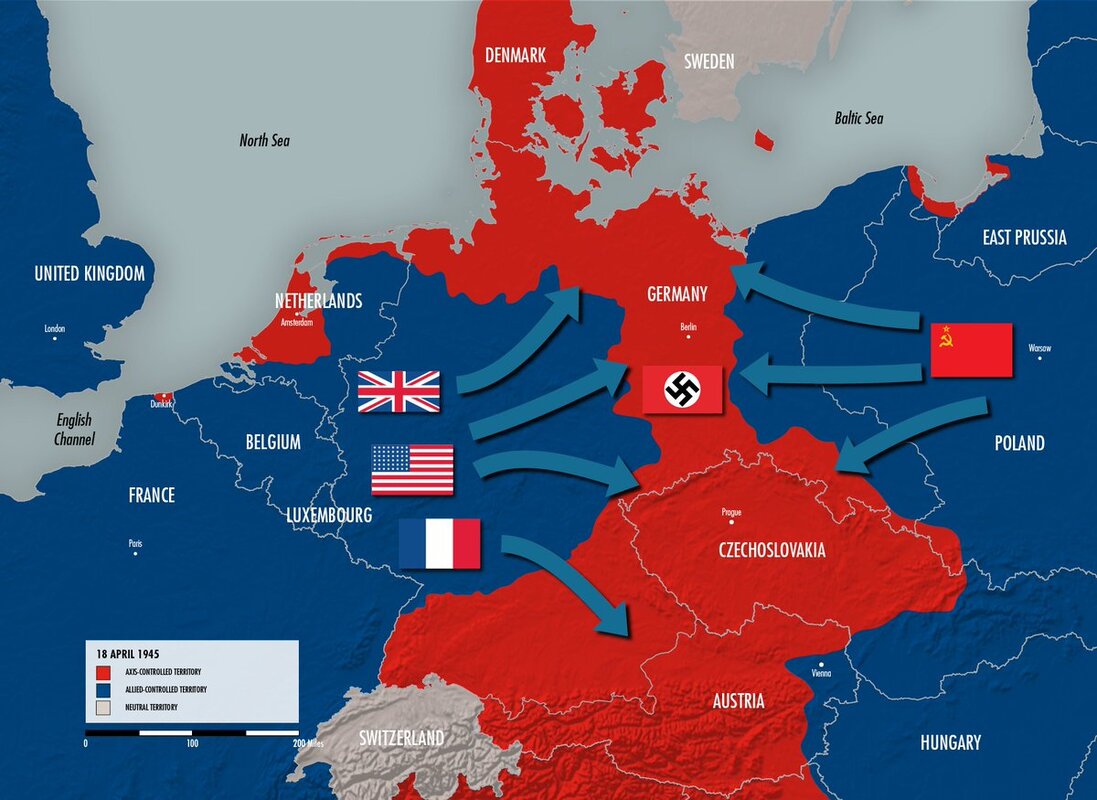Lesson 1 - The long-term origins of the Cold War
|
|
According to Wikipedia, 'the Cold War was a period of geopolitical tension between the Soviet Union and the United States and their respective allies, the Eastern Bloc and the Western Bloc, after World War II. The period is generally considered to span the 1947 Truman Doctrine to the 1991 dissolution of the Soviet Union.' Historians actually disagree about when exactly the Cold War began. Some argue that the Cold War was inevitable after the Bolshevik Revolution in 1917 and throughout the 1920s and 30s, the two sides were already engaged in a proto-Cold War which culminated in Stalin's decision to side with Hitler against the capitalist democracies in 1939 (The Nazi-Soviet Pact).
|
|
As we have seen, from December 1941 the USSR and USA joined the UK in a Grand Alliance to defeat the fascist European dictatorships in Europe and Japan. Relations between the powers remained good as long the war continued. The Yalta conference (see Lesson 2) of the USA, USSR and UK in February 1945 resulted in broad agreement about how the war would be concluded (e.g. USSR would join the war against Japan) and how the world would be reorganised once the was over (e.g. a United Nations Organisation would be established and a Joint Declaration of Liberated Europe guaranteed that the people of Europe would be allowed 'to create democratic institutions of their own choice'). After the defeat of Germany in May 1945 (see map) relations started to strain. |
The joint meeting at Potsdam in July and August 1945 has been described as 'bad tempered affair'. The USA had kept the development of the atomic bomb a secret and no longer needed the support of the USSR to defeat Japan. The USSR demanded massive reparations from Germany (something Roosevelt had agreed to) and had no intension of giving up the hard fought for lands that it now occupied. So did the Cold War really begin in 1947 as Wikipedia claims?
Activities
|
|
|
Read this article from Steve Phillips Cold War and make a set of summary notes under three headings: Earliest origins, 1930s and World War II. This also serves as a useful revision of the history of the USSR and international relations in the interwar years.
Watch the first episode of the series Cold War. From my experience, watching a selection of key extracts from the series is an excellent way to prepare for a pending oral examination. The whole series is available to watch here.

